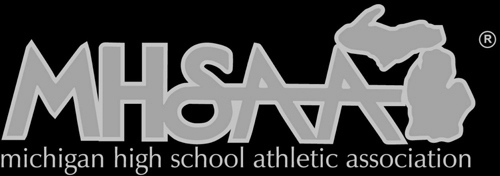
Changes Create Calendar Conundrum
April 2, 2015
By Jack Roberts
MHSAA Executive Director
Decades ago, schools developed policies and procedures for competitive athletics that educators knew were best for both schools and students.
Schools believed that for every sport a period of guided practices to prepare students for competition was important to minimize risks and maximize performance. Maximum numbers of competitions per day and per week reinforced these beliefs and tended to assure students also had time for their studies.
Schools believed that the season should not run on forever, and maximums were established on the total number of weeks and competitions.
Schools believed that at least a short break between sports was good for both the bodies and minds of students, and that an extended break in the summer was also good, providing opportunities to engage in other sports, or for summer employment, or for family time and travel.
On every count, schools were correct.
Unfortunately, over time, sports programs of non-school groups have moved into every month, week, day or half-day that schools have not programmed for students. Most of it is competition without preparation (lots of games, few practices). And parents far too often have been far too willing to pay any amount and drive any distance to facilitate their child’s interest or force their child’s play.
What do educators do when what their heads tell them is the best no longer resonates in the hearts of so many people their schools are to serve?
And that question is at the heart of this week's MHSAA benchmarks series examining out-of-season issues. Watch for more installments over the next four days.

In Memoriam: Haack, Locke, Newton
By
Geoff Kimmerly
MHSAA.com senior editor
August 17, 2016
From time to time, we receive news of the passing of people who have played major roles in the near-century history of MHSAA athletics. Below are notes on a few who left us this summer but made major contributions.
Ray Haack, St. Joseph – Haack taught and coached at Reese High School before serving in the U.S. Navy during World War II, then was employed by St. Joseph High School from 1946-86. According to his obituary, Haack built a 198-86 record coaching the Bears’ boys basketball team from 1951-66. He led the 1951 and 1953 teams to Class B championships. He died July 6 at the age of 96.
Ralph Locke, Albion – Locke was an MHSAA registered official for 38 years, for basketball during his entire tenure and for football beginning in 1986. He officiated a number of MHSAA tournament contests, mostly in football but also boys basketball, and worked Semifinal and the Class AA Final for football (Detroit Catholic Central 27, Rockford 23) in 1998. He died July 29 at age 61.
Bill Newton, Farmington – Newton led Farmington to an unexpected first MHSAA ice hockey championship in 2014, his first season as varsity coach, as his team upset reigning champion Bloomfield Hills Cranbrook Kingswood in the Quarterfinal. His teams finished 44-33-4 over three seasons with a league title this past winter, and he resigned at the end of last season in part to continue his fight against cancer, according to a report by the Farmington Observer & Eccentric. Newton had previously coached as a varsity assistant for four years and junior varsity assistant for two, the report said. He died Aug. 6 at age 55.

